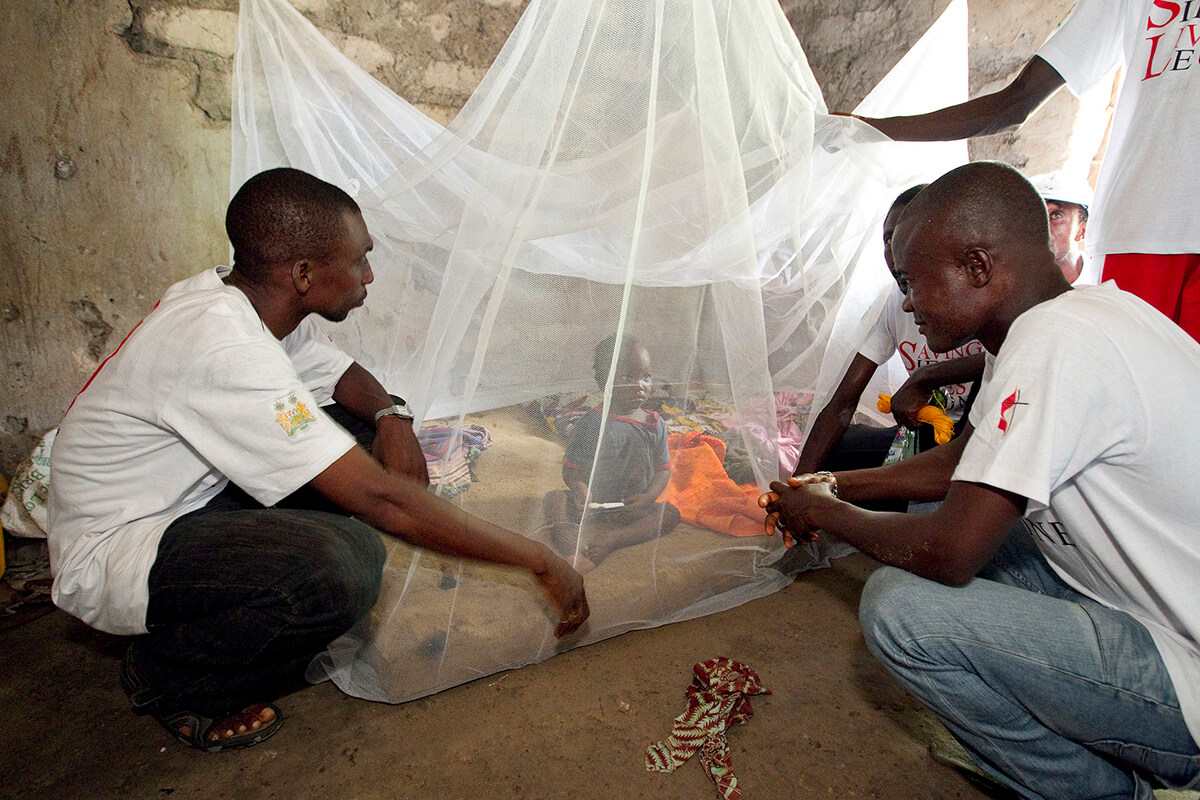Bishop Thomas J. Bickerton took a moment to lead a well-earned victory lap for the Imagine No Malaria campaign, noting that it will come to an end with 2024.
While the program itself is sunsetting, Global Ministries’ broader work in global health will continue.
Bickerton, chair of the executive committee for Imagine No Malaria, termed it as “the last great movement in The United Methodist Church.”
“It was created with a simple line: ‘Buy a net, save a life,’” he said. “I used to travel across the church with a $10 bill in my pocket — and was privileged to help raise $75 million — $10 at a time by inviting people in the pews to catch a glimpse of how they could participate in global mission.”
One highlight came when the people of Liberia sent a $100 contribution, “which was very sacrificial on their part,” Bickerton said.
“They said, ‘We, too, want to be a part of the story of what it means to save a life. You’ve done so much for us. We’d like to save 10 lives, as well,’” Bickerton said.
The Imagine No Malaria campaign ensured that anyone visiting a United Methodist health clinic received a mosquito net to reduce their chances of contracting malaria. Pastors and students were trained to spread malaria awareness to their classmates and parishioners and to encourage a health clinic visit at the first sign of disease, since early intervention is critical.
Because of the net distributions, education campaigns, rapid testing and the training of health care workers, thousands of people are now protected against malaria.
Bickerton revealed that Imagine No Malaria was “born out of conflict, and it was born out of a lack of collaboration.”
The backstory is that United Methodist Communications came up with the idea, and “(Global Ministries) didn’t like it because it was (supposed to be) their work,” Bickerton said.
“Before long, a movement caught on that no one could deny,” he said. “And no one wanted to stand in the way of that and so collaboration began to evolve out of necessity.
“But what’s resulted, as the years have passed, is the blending of two agencies into a collaborative effort that was designed to keep the bottom line in mind.
“What does it mean, to save a life?”
So political silos were pushed aside to get the job done.
“The resulting of these two agencies coming together was an implementation plan that made a significant impact on the creation of indigenous health boards, and tangible ministries that truly moved the needle of global health,” Bickerton said.
Return to main story Boards push forward despite budget cuts.




